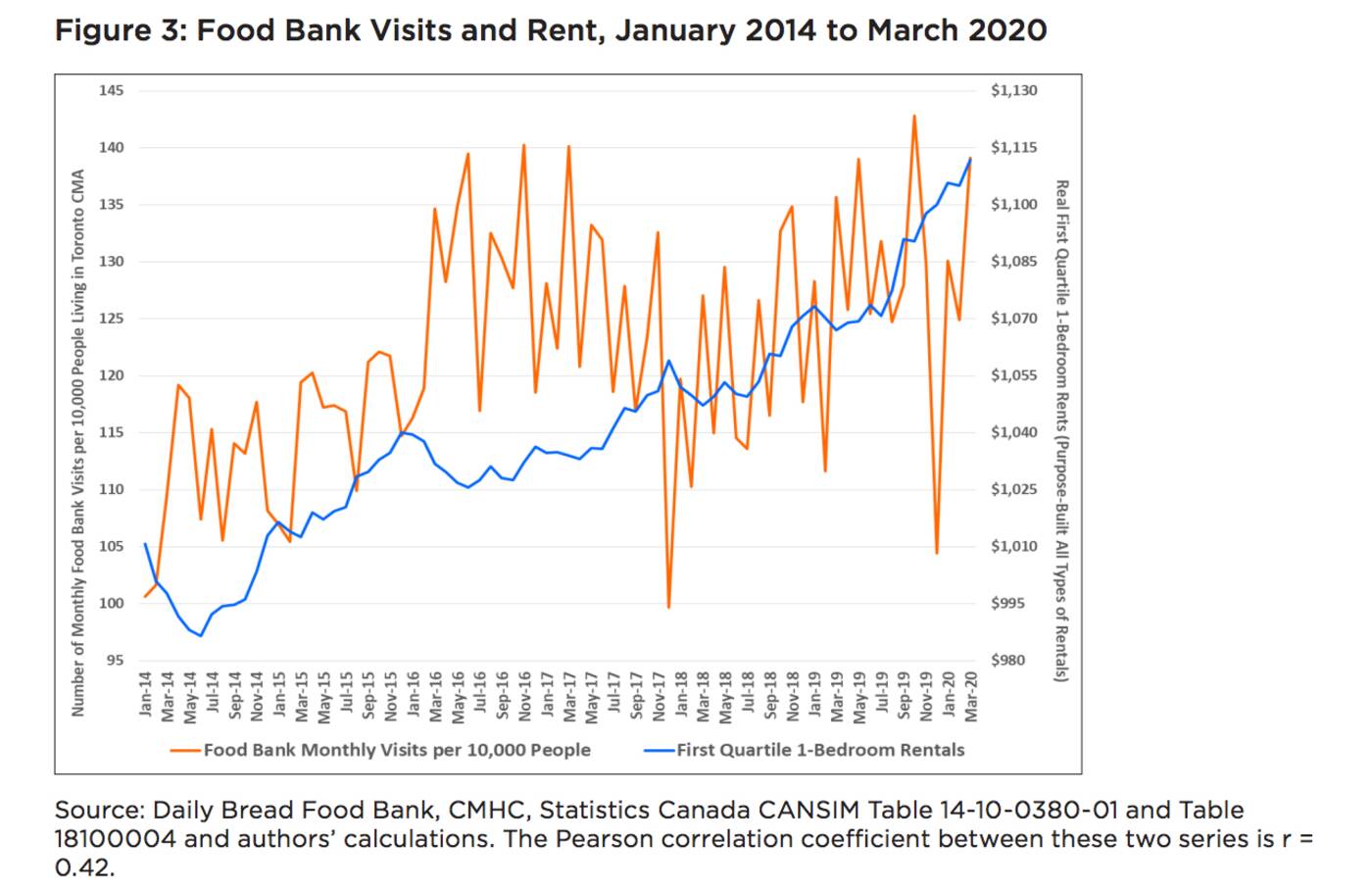
Rising Toronto rent prices are forcing thousands of people to go hungry
As apartment rents in Toronto increase, many people are left with two choices — either leave the city or struggle to pay for the necessities of life.
While Toronto rents declined after the first lockdown, more recently the city has seen rents spike. The average rent for a one-bedroom apartment is around $1,900 a month right now compared to around $1,800 in 2021.
A new study finds that these rising rents will spell trouble for people simply trying to get by in Toronto.
Just a $30 per month increase in rent would lead to an additional 73,776 visits annually to food banks in Toronto, and 375,000 more across Ontario a new report, titled Government Public Policy Drives Number of Food Bank Visits, published by the University of Calgary, School of Public Policy shows.
"Like the proverbial canary in the coalmine, increased visits to food banks may be considered an early warning sign of trouble developing in social programs," the study notes.
The report was developed using data from the Daily Bread Food Bank from January 2014 to March 2020. During that time period, Daily Bread Food Bank visits increased by a whopping 53 per cent.
The study compared the number of food bank visits per 10,000 people to changes in the rent paid on a one-bedroom unit.

Chart via Government Public Policy Drives Number of Food Bank Visits, the University of Calgary, School of Public Policy
The study used markets rents because 67 per cent of food bank clients in Toronto and the surrounding area reported living in market rentals in 2019. They assumed most people were in a one-bedroom unit since two-thirds of clients are either single (51 per cent) or single parents (16 per cent).
With the price of just about everything — from groceries to gasoline — increasing, this problem is not going away anytime soon.
But the study also finds some solutions.
When the minimum wage was introduced in January 2018, the number of food bank visits declined. And the researchers determine that just a $1 increase in the minimum wage would lead to about 36,876 fewer visits to food banks annually in Toronto.
Also, a $15 increase in Ontario Disability Support Program would be associated with 53,652 fewer visits to the food banks annually in Toronto.
The study shows that something can be done to help people, provided the political will.
"This study shows that governments can put food banks out of business by focusing policies on rent stability and increasing wages and disability benefits," says Neil Hetherington, CEO, Daily Bread Food Bank.
"A failure to prioritize these will sadly drive more people to our doors because they have nowhere else to turn when their income cannot cover the cost of living."
blogTO
Latest Videos
Latest Videos
Join the conversation Load comments







